A reminder for new readers. That Was The Week collects my selected reading on critical issues in tech, startups, and venture capital. I select the articles because they are of interest to me. The selections often include things I entirely disagree with. But they express common opinions, or they provoke me to think. The articles are snippets, sometimes long to convey why they are of interest. Click on the headline to go to the original or the ‘More’ link at the bottom of each piece. I express my point of view in the editorial and the weekly video below.
Thanks To This Week’s Contributors: @kwharrison13, @satariano, @dmccabe, @Kantrowitz, @BigTechnology, @davidcummings, @geneteare, @altcap, @bgurley, @MParekh, @romaindillet, @apple, @julipuli, @BitcoinMagazine
Contents
Bill Gurley and Brad Gerstner
Bitcoin beats all time high
Editorial
There are three major actors on the stage of this week’s newsletter: Big Tech, or as Kyle Harrison describes them, the incumbents; governments, especially the EU, with its regulatory urges; and finally, startups (not incumbents) like OpenAI, Anthropic, Grok, and others.
The headlines point in many different directions. The EU is fining Apple $2 bn. But it is fighting back and refusing to bow down to Epic, Spotify, and others seeking to freeload on its platform. Google is having a moment contrasting with Kyle’s point that we are in ‘The Age of Incumbents. '
In speaking to the power of big tech, Kyle says:
The opportunities are out there. But here's some key takeaways: For a long time people wrote off questions like, "why won't Microsoft / Facebook / Google just do this?" But that's not a great thing to ignore anymore. Those are legitimate threats, and they’ve never been better positioned. It's not enough to say "this is better than XYZ Incumbent because the user experience is better." We're not replacing legacy dinosaurs; the dinosaurs today are much more dynamic.
Alex Kantrowitz writes at length about the collapse of Google’s open culture and the consequences of over-bearing control mechanisms internally:
Previously accessible Google executives have disappeared, once acceptable questions can’t be asked, and a dispassionate arrogance has taken hold. Unsurprisingly, the company’s deficient culture is showing up in the product, most vividly in its recent Gemini debacle. As a user and shareholder, I’m concerned.
New York Times writers @satariano, and @dmccabe speak about the global implications of Big Government:
..people’s technology experiences will increasingly differ based on where they live.
As for Startups, and to cap it all, Elon Musk and Sam Altman entered into a public fight triggered by Musk’s lawsuit. Giving the impression that the AI revolution is in trouble. Gené Teare reports on declining venture funding for February.
But coming to the rescue, Anthropic launched version three of its AI Claude.ai. Widely praised as being close to or better than Chat GPT in some ways.
Big Tech is strong, Big Tech is weak, Governments are strong, Governments are weak. Startups are strong. Startups are weak.
This confused landscape needs to be analyzed to be understood.
So, what really happens when you look at trends in Big Tech, Governments, and Startups?
First and foremost, Governments are desperately using bureaucratic power to pursue narrow objectives. The EU's support for Spotify against Apple is clearly a partisan attack by an illegitimate body seeking to extract cash. The same body attempting to prevent Adobe from acquiring Sigma or Amazon from acquiring iRobot is similarly motivated. This differs from the SEC seeking fines from Web3 innovators and Lina Khan seeking to block technology companies from making acquisitions.
Governments are the most obvious victims of technology's rapid and accelerating growth. Their borders limit their power, but technology is inherently borderless. The tools we all use are not national at all.
Government attempts to get technology under control cannot succeed because they do not have global reach.
The end result, with many governments all trying to control the new technologies, like the Italians with AI, is inevitable and destructive of the speed of human progress.
The historical parallel that comes to mind is the government of Florence trying to hold back the formation of Italy. Small governments are powerless in the face of larger trends outside their borders but impacting their citizens. They can, at best, slow progress down.
And, of course, they will try.
Read the headlines through that prism, and a lot becomes clearer.
As for Big Tech, it’s too early to say whether the incumbents today have more power than those from the late 1990s. Google has challenges due to its reliance on search-related advertising, but Facebook, Amazon, Apple, Netflix, and Nvidia are all prospering. On the face, Kyle seems right.
However, OpenAI, Anthropic, MidJourney, Perplexity.ai, and many open-source AI initiatives provide the antithesis. David Cummings's piece about “The Forever Lean Startup” shows why the trend will only accelerate.
The cost of AI to users will likely trend towards free, and everyone worldwide will have access to it.
That means voice interfaces and new devices will challenge the paradigm of web page or mobile app-based experiences. No incumbent will be left behind. Startups will grow and prosper. Human experiences will become increasingly enhanced by access to technology.
Governments are the biggest threat to the future. As the EU demonstrates, top-down bureaucrats seeking to preserve their power cannot be trusted to think about you and me any more than Big Tech management teams can be trusted. The future is in innovators who challenge the status quo.
I wrote this after listening to Biden’s State of the Union. I thought he was great.
Essays of the Week
The Age of Incumbents
Distribution + Data Become Concentration Functions
KYLE HARRISON, MAR 2, 2024
Technology is a versatile little word. It can mean a whole host of things. Some people think technology began with computers, or software, or the internet. Other people think technology didn't really get going until ChatGPT came out.
But the reality is technology is simply "the application of scientific knowledge for practical purposes." So fire, or early stone tools, these are all technology.
However, even if technology as a concept has been a round for the entirety of recorded human history, technology as an asset class is relatively new. When you think about the stock market as one reflection of what "assets" exist you've had railroads, mining, construction, industrials, etc. to reflect exposure to a particular value chain. Technology has always played a part in all of these. But it wasn't until recently that asset managers had to start thinking about exposure to "tech" in a more pure form.
Takeover of Tech
A fascinating exercise that I wish I could take a lot more time unpacking is to look through the history of the S&P 500 as an almost archeological dig of business history. Since its creation in 1957, it has attempted to reflect the overall market by building an index of some of the biggest companies, weighted by market cap.
Again, technology has played a part in basically every company on the list in one way or another. In 1957, there were even some technology bastions included that you'd recognize, like IBM, or Motorola. Folks like HP and Intel got added in 1974 and 1976 respectively. But by and large, the biggest companies were very different than today.
In 1996, for example, the largest companies by market cap were GE ($136B), Royal Dutch Shell ($128B), Coca-Cola ($117B), and ExxonMobil ($102B). Intel and Microsoft got into the list of biggest market caps in 1998, and tech has been an increasingly larger part of that list ever since.
Today, 7 of the top 10 companies by market cap are pure tech companies (not to mention Apple is 44% of Berkshire Hathaway's portfolio; by far their largest position).

While technology as an asset class has become bigger, and bigger, its become pervasive. Everything runs on internet time now. Everything moves much faster. You can look at just how fast the world of interests in particular tech companies turns over. Take this video for example:

But even with that video, when you get to ~2012 you notice how much the change slows down. The biggest platforms stay the biggest. So what happened?
Revolution & Replacement
One aspect of the early internet revolution was that it was just that: a revolution. There were old ways of doing things and now there were new ways of doing things. When you think about the biggest platforms, they were either replacing dinosaurs, or inventing an entirely new thing.
Forced to Change: Tech Giants Bow to Global Onslaught of Rules
For years, Apple, Google, Meta and others operated unfettered. But new laws and regulations have finally compelled them to make major shifts to their products and businesses.
By Adam Satariano and David McCabe
Adam Satariano writes about digital policy from London. David McCabe covers tech policy from Washington.
March 4, 2024
By Thursday, Google will have changed how it displays certain search results. Microsoft will no longer have Windows customers use its Bing internet search tool by default. And Apple will give iPhone and iPad users access to rival app stores and payment systems for the first time.
The tech giants have been preparing ahead of a Wednesday deadline to comply with a new European Union law intended to increase competition in the digital economy. The law, called the Digital Markets Act, requires the biggest tech companies to overhaul how some of their products work so smaller rivals can gain more access to their users.
Those changes are some of the most visible shifts that Microsoft, Apple, Google, Meta and others are making in response to a wave of new regulations and laws around the world. In the United States, some of the tech behemoths have said they will abandon practices that are the subject of federal antitrust investigations. Apple, for one, is making it easier for Android users to interact with its iMessage product, a topic that the Justice Department has been investigating.
“This is a turning point,” said Margrethe Vestager, the European Commission executive vice president in Brussels, who spent much of the past decade battling with tech giants. “Self-regulation is over.”
For decades, Apple, Amazon, Google, Microsoft and Meta barreled forward with few rules and limits. As their power, riches and reach grew, a groundswell of regulatory activity, lawmaking and legal cases sprang up against them in Europe, the United States, China, India, Canada, South Korea and Australia. Now that global tipping point for reining in the largest tech companies has finally tipped.
The companies have been forced to alter the everyday technology they offer, including devices and features of their social media services, which have been especially noticeable to users in Europe. The firms are also making consequential shifts that are less visible, to their business models, deal making and data-sharing practices, for example.
The degree of change is evident at Apple. The Silicon Valley company once offered its App Store as a unified marketplace around the world, but it now has different rules for App Store developers in South Korea, the European Union and the United States because of new laws and court rulings. The company dropped the proprietary design of an iPhone charger because of another E.U. law, meaning future iPhones will have a charger that works with non-Apple devices.
On Monday, Apple was fined 1.8 billion euros, or $1.95 billion, by E.U. regulators for thwarting competition among music streaming rivals.
The modifications mean that people’s technology experiences will increasingly differ based on where they live. In Europe, Instagram, TikTok and Snapchat users under the age of 18 no longer see ads based on their personal data, the result of a 2022 law called the Digital Services Act. Elsewhere in the world, young people still see such ads on those platforms.
The tech industry is essentially maturing and becoming more like banking, automobiles and health care, with companies tailoring their products and services to local laws and regulations, said Greg Taylor, an Oxford University professor focused on competition in technology markets.
“This represents a sea change in how we regulate the tech sector,” he said. “Although the E.U. is the first out of the gate, other jurisdictions around the world are trying to do similar things.”
Yet even as the big tech firms make changes, smaller rivals like Spotify say much more government action is needed worldwide to seriously address their vast power. Many of the firms continue to report record profits and sales. Microsoft, Meta, Amazon, Apple and Alphabet, Google’s parent company, have helped push the stock market to new highs. Their combined market value has more than doubled since the end of 2019 to nearly $10.6 trillion.
Even policymakers behind some of the new rules said it was unrealistic to assume the new laws and regulations would immediately dislodge dominant companies like Google or Apple. Andreas Schwab, a member of the European Parliament who helped write the Digital Markets Act, said the hope was that over time, the rules, if strongly enforced, would provide space for new entrants to emerge and grow.
How Google Blew Up Its Open Culture and Compromised Its Product
Big Technology: David Kiferbaum held various roles within Google from 2015 - 2023. And today, he writes of its open culture’s demise, and its impact on the product.
By David Kiferbaum
In my seven years at Google, one of the most shocking moments came after I questioned our fixation with the word “guys.”
It was 2017, and Google had been facing gender pay gap allegations when I attended an unconscious bias training. Rather than directly discuss the issue, the instructors were obsessed with word choice, focusing on replacing “guys.”
“You should be aware that the term ‘guys’ is gendered and could be alienating for some Googlers, so instead you should be referring to groups of people you work with as ‘team’ or ‘folks’,” one session leader said.
When I challenged the instructor, raising skepticism that this language change would address the real issue, I got shouted down.
“How dare you!” a colleague said from the other side of the room. Other participants, and the instructor, began to scold me. I nearly got shouted out of the session.
~~~
Google used to be a place to ask questions. “You must make it safe to ask the tough questions and to tell the truth at all times, even when the truth hurts,” wrote Eric Schmidt and Jonathan Rosenberg in their 2014 book How Google Works. “When you learn of something going off the rails, and the news is delivered in a timely, forthright fashion, this means — in its own, screwed-up way — that the process is working.”
Inside Google today, the process is not working. Previously accessible Google executives have disappeared, once acceptable questions can’t be asked, and a dispassionate arrogance has taken hold. Unsurprisingly, the company’s deficient culture is showing up in the product, most vividly in its recent Gemini debacle. As a user and shareholder, I’m concerned.
Let me give you my best explanation for how we got here. When I joined Google in 2015, the company’s culture of openness was in full swing. It was a universal practice to attend its weekly TGIF meetings and listen to Larry Page and Sergei Brin (or their lieutenants) offer candid, direct answers to probing employee questions, asked in-person or via ranked online submissions.
At these meetings, there were a few brave, recurring characters who asked confrontational in-person questions every week. Not every answer was great — for a few years the livestream offered live sentiment analysis and bad answers would immediately get lambasted on the internal meme page, memegen — but most of the time the information was high-quality, creating a culture of tuning in and taking the information sharing seriously.
Then, a shift began in 2017 when Google engineer James Damore circulated a memo titled “Google’s Ideological Echo Chamber.” His controversial memo questioning Google's diversity practices noted that "Google’s political bias has equated the freedom from offense with psychological safety, but shaming into silence is the antithesis of psychological safety.” Damore zeroed in on “psychological safety,” a concept that Google had validated through research, and made sacrosanct to management, as critical to the effectiveness of teams.
Rather than reaffirm Google’s culture of open questioning and psychological safety by actively challenging Damore’s assertions, leadership fired Damore and ended the discussion. The irony wasn’t lost on the media — a CNN piece at the time noted that the fallout represented “perhaps the biggest setback to what has been a foundational premise for employees: the freedom to speak up about anything and everything.”
Google leadership did further damage to the company’s open culture following employee protests of military contracts and executives’ alleged sexual harassment. Following this employee action, Sundar effectively killed TGIF in 2019. He not only abandoned the weekly cadence, but also ended live questions, increasing the prevalence of skipped-over submitted questions and evasive “corp speak” responses. While supposedly due to leaks, the media widely and correctly interpreted this event as the culmination of Google’s abandonment of its open ethos. We stopped tuning in.
The closing of Google’s open culture harmed the product. Perhaps a more empowered and vocal Google employee base would have pushed for its nascent large language models to be incorporated within the languishing Google Assistant, or have stood up and flagged the uncomfortable flaws in Gemini’s image generation. Instead, Google’s AI strategy looks unmoored.
Rise of the Forever Lean Startup
David Cummings March 2, 2024
Last month, I was talking to an entrepreneur I had heard of before but hadn’t met in person. We got to talking about the ups and downs of his business, and he shared that things are going really well. Revenue has been growing fast. They just had their first profitable month, and it looks like it’s going to be a great business.
I asked how they approach things from a team and work perspective, and he shared something I’ll never forget. Their goal is to never have more than 10 employees and instead, they lean heavily on ChatGPT and other AI tools to augment their onshore, in-person team. Then, they have a growing presence in Eastern Europe for all of their development efforts and a customer service presence in the Philippines.
So, the business is based in Atlanta. The founders are in Atlanta, and their goal is to never have double-digit official employees. Instead, the main work is done by experts in one country, and the main support is done by experts in a different country. Everything that can be automated internally is automated; everything that can be outsourced is outsourced.
The ultimate result is a new category of startup: the forever lean startup.
Thinking more about this model, I think this is going to be a serious trend in startupland.
Entrepreneurs are always trying to figure out how to do more with less. They’re always trying to figure out how to scale their organization in a repeatable, flexible way. Funding has gotten more challenging as valuations have gone down for most types of startups (excluding AI ones!), and entrepreneurs want to control their own destiny.
When you raise money from VCs and other funding sources, nine times out of ten, that means you’re on the fundraising treadmill, and every 12 to 24 months, it’s time for a new round of financing. What if the business could grow fast, have limited fixed costs, and still achieve the entrepreneur’s goals, but do so in a way that automates as much as possible, outsources as much as possible, and still delivers an amazing experience to the customer?
The rise of the forever lean startup is something we’re going to see much more of over the next decade. Look for a whole new class of entrepreneurs that refine and build best practices around this model of maximum flexibility with minimum overhead.
Global VC Funding Settles Around $20B In February But AI Share Increases
March 7, 2024, Gené Teare @geneteare
Global venture capital funding reached $21.5 billion in February 2024 — flat month over month and slightly up from February 2023, Crunchbase data shows.
Globally, more than $2 billion was invested in seed-stage companies last month. Close to $10 billion was invested in early-stage companies. And venture investors spent $9.3 billion at late-stage, including technology growth companies.
The largest funding round in February went to 32-year-old North Carolina-based Epic Games. That was a $1.5 billion strategic investment in the Fortnite maker from Disney at a valuation of $22.5 billion, which was 30% lower than the $32 billion valuation set in a 2022 funding round for Epic.
The next largest funding went to a much younger company: Beijing-based AI startup Moonshot AI, which is just a year old. The large language foundation model company raised a $1 billion Series B funding at a $2.5 billion valuation led by strategic investor Alibaba and Sequoia Capital China.
AI sector captures large share of funding
Overall, AI companies captured a larger share of startup investment in February, Crunchbase data shows. More than a fifth of all venture funding in February went to AI companies, with $4.7 billion invested in the sector. That was up significantly from the $2.2 billion invested in AI companies in January 2024 and the $2.1 billion invested in February 2023.
Other large rounds in AI went to a number of Bay Area-based companies. Two-year-old humanoid robot company Figure raised $675 million at a $2.7 billion value and partnered with OpenAI. The slew of investors included Microsoft, OpenAI’s Startup Fund, Nvidia and Bezos Expeditions, among others.
Cloud-based GPU company Lambda and AI search company Glean also both raised large fundings, each north of $200 million.
AI optimism but also concern rise with sky-high valuations
The pandemic-led zero interest-rate policy funding climate is clearly in our rearview mirror. Global average monthly funding — which shot up in 2021 — has come down by 62% from that market peak.
Still, there are many concerns in venture capital circles that AI is the next bubble, as companies in this sector continue to raise massive rounds in quick succession and at huge valuations.
..More
Video of the Week
AI of the Week
Battery Ventures Sees AI’s Massive Impact On Tech, And It’s Here Already
March 6, 2024
Editor’s note: This article is part of an ongoing series in which Crunchbase News interviews active investors in artificial intelligence. Read previous interviews with General Catalyst, Bessemer Venture Partners, Accel, Insight Partners, Index Ventures, Sequoia Capital, Section 32, M12 and Sapphire Ventures as well as highlights from these stories from 2023.
AI isn’t a feature. It’s not even a sector, if you ask Dharmesh Thakker.
“I look at AI as a fabric,” said Thakker, a general partner at storied venture firm Battery Ventures.
Thakker recently met with us at his office on Silicon Valley’s Sand Hill Road to talk about the current investment landscape and the 40-year-old firm’s approach to investing in AI.
With AI, “you’re automating human intelligence,” which could be a higher order revolution than cloud or PCs, he said.
Battery has made investments in Arize, Weaviate and Galileo in technologies that assist companies with model management and performance. It is also an investor in Databricks, a more established data products startup that reached $1.5 billion in revenue run rate in July 2023 and acquired MosaicML for $1.3 billion that same month.
Thakker joined Battery in 2015 to build out its infrastructure, data and cloud practice. An engineer by training, he started his career interning at semiconductor companies, then switched to software and was an early employee and co-founder of smaller companies in infrastructure and security that were later acquired.
Prior to Battery, he was the managing director for cloud and big data investments at Intel Capital, the active investment arm of semiconductor company Intel.
“The technology revolutions we’ve seen so far — whether it’s cloud or mobile, or even personal computing or internet — took some inefficient mechanism and tried to provide some technology to make it easier,” he said.
AI goes much further. “The promise of AI is a stake in human judgment and trying to automate some of it so that humans can focus on higher-order tasks that are much more fruitful,” he said.
The impact of AI is also being immediately felt in areas of the economy that have traditionally been further removed from deep tech innovations, he noted. “Increasingly, the boundaries between infrastructure and applications are converging in some sense, because AI is a highly technical space, but the impact is being felt by designers and marketing folks,” Thakker said.
Increased productivity in tech and sales
A historically low interest-rate environment for many years gave the tech industry leeway to become inefficient and less disciplined, Thakker said, but that’s now changing quickly. There’s now pressure on companies to manage costs, he said.
“Just in front of our eyes, we’re seeing companies that are growing 20% to 30%, can now be cash flow break even almost immediately, or within 12 months, by applying generative AI to sales and marketing, R&D, recruiting and other areas of the business,” Thakker said. “And so, we’re seeing this innovation fully impact productivity in the tech sector.”
Thakker notes that it’s estimated more than $500 billion per year is spent on sales and marketing personnel in the software industry, using tactics developed 20 years ago.
..More
AI: Anthropic's new AI Models
...the new performance contender, with a keen focus on AI Safety
MAR 5, 2024
Anthropic, the other major Foundation LLM AI “New Kid on the Block” after OpenAI and Google, rolled out its next-gen models that go up against the top dogs (OpenAI’s GPT-4 and Google’s Gemini Ultra), on some key metrics. As Ben’s Bites pithily summarizes in “Anthropic's drops a bomb—Claude 3 might be the new AI king.”:
“OpenAI’s GPT-4 is no longer the lone wolf in the “scary-good AI” valley. Anthropic is making bold claims with their latest release, Claude 3. The new family of language models is going for the jugular, beating the reigning champ like OpenAI's GPT-4 and taking on newcomers like Google's Gemini.”
“What’s going on here?”
“Anthropic's betting big that Claude 3 is THE next-gen AI for businesses, And based on their benchmarks, they might not be just blowing smoke.”
“What does that mean?”
“Claude 3 isn't a one-size-fits-all. It comes in flavours (or should I say jingles): Opus, Sonnet, and Haiku. Opus is the monster truck, pricier but insanely powerful, Sonnet's your versatile workhorse and Haiku keeps things lean and mean for cost-sensitive tasks.”
“Anthropic claims Opus flat-out beats GPT-4 and Gemini 1.0 Ultra on everything from general knowledge to coding challenges. Sonnet trades punches with GPT-4, winning some, losing others. Though little caveat: These benchmarks might not factor in the latest updates like GPT-4 Turbo and Google’s unlreased Gemini 1.5 Pro. I’ve more on “performance” below.”
“These models are vision-ready, so you can send images into them to give more info and context. Also, remember, Anthropic's whole thing is about safer AI. Past models were good but could be overcautious. They claim they did some behavioural design with Claude 3 that nails the balance—less likely to choke on harmless requests without going rogue.”
“Claude 3 maintains Anthropic’s 200k context windows but claims near-perfect recall across that context length. Big baddie Opus performs best and can have a context window of up to 1M tokens but it’s behind private access. Well, that reminds me, Anthropic’s API is now generally available (they were pretty pesky about API access earlier). You can use Opus and Sonnet right now via the API, while Haiku needs some more work.”
The piece goes onto to discuss pricing and availability, along with performance on other metrics. The general positive take on the Anthropic’s release was also echoed by other outlets including Bloomberg, and others.
As CNBC reminds us in “Anthropic, backed by Amazon and Google, debuts its most powerful chatbot yet”:
“Anthropic on Monday debuted Claude 3, a chatbot and suite of AI models that it calls its fastest and most powerful yet.
“The company, founded by ex-OpenAI research executives, has backers including Google, Salesforce and Amazon, and closed five different funding deals over the past year, totaling about $7.3 billion.”
“The new chatbot has the ability to summarize up to about 150,000 words, or a lengthy book, compared to ChatGPT’s ability to summarize about 3,000. Anthropic is also allowing image and document uploads for the first time.”
I’ve discuss the strategic significance of Anthropic being backed by both Amazon and Google in earlier pieces, and it emphasizes the race by all the major LLM AI and AI Cloud data center and infrastructure providers in the AI Tech Wave chart’s Boxes 3 through 5. It highlights the on going focus by all the top AI companies to pulling out all stops against OpenAI and Microsoft.
Remember that Anthropic founders, coming from OpenAI are intensely focused on AI Safety first in its culture and DNA.
AI: OpenAI & Elon Musk, lawsuit and counter-moves
...both personal and business for big stakes going forward
MICHAEL PAREKH, MAR 6, 2024
The feud between OpenAI’s Sam Altman and Elon Musk accelerated this week, as OpenAI responded to Elon Musk’s lawsuit on the company’s governance structure and directions.
The origin story and history between the two companies goes back almost a decade, and one I’ve written about earlier. It’s a seminal chapter in these early days of the AI Tech Wave. And now it’s increasingly in the public eye, especially through lawsuits and public responses. And as recounted before, Microsoft and CEO Satya Nadella are also more than a bit player in this saga. Not to mention the Google founders and current CEO Sundar Pichai of course, both in the past and now future.
The WSJ has a detailed account titled “How the Bromance between Elon Musk and Sam Altman turned Toxic”, highlighting many of the blow-by-blow details, including to the current state of affairs between the two former friends and partners:
“Musk told Altman about his plans to start a competing artificial general intelligence company, xAI. Altman questioned whether adding another entrant into the AI race would ease Musk’s concerns. In the months after ChatGPT’s release, Musk began trying to poach OpenAI employees for xAI. He also threatened to sue Altman and OpenAI.”
“In November, Musk announced his own chatbot, Grok. He described it as a less “woke” competitor to ChatGPT. Musk gave the new chatbot access to Twitter’s trove of online data, as well as space in its San Francisco office. In recent weeks, xAI has begun preparing for a new fundraising round, a move likely to intensify its race against OpenAI.”
“After Musk filed his lawsuit, Altman wrote a memo to his staff: “The implication that benefiting humanity is somehow at odds with building a business is confusing,” he said. “I miss the old Elon.”
In a public blog post this week, OpenAI laid out its counter arguments to Musk’s lawsuit, complete with email ‘receipts’:
“The mission of OpenAI is to ensure AGI benefits all of humanity, which means both building safe and beneficial AGI and helping create broadly distributed benefits. We are now sharing what we've learned about achieving our mission, and some facts about our relationship with Elon. We intend to move to dismiss all of Elon’s claims.”
It’s a story of great ambitions all around. Particularly in terms of what Elon Musk wants to do with AI across all his businesses, from X/Twitter to Tesla to xAI and more.
..More
News Of the Week
Andreessen Horowitz Closes In On Up To $7B In New Funds
March 7, 2024
Andreessen Horowitz, known for early bets on then-startups such as Facebook, Instagram and Airbnb, is reportedly “weeks away” from closing on as much as $7 billion in new funds.
A16z is targeting $6.9 billion for a “master feeder fund,” per the report in Axios. The firm expects a final close in early April on between $6.5 billion and $7 billion.
Per the report, half of the raise — as much as $3.5 billion — would go to the firm’s fourth growth fund. A16z announced its last growth fund in early 2022 at $5 billion, so the new growth fund would be significantly less.
The firm also is not raising dedicated early-stage or seed-stage funds, but instead splitting money by subsector. That will include 15% for an AI infrastructure fund and an AI apps fund, and also 10% for an “American dynamism” fund which would support national interests such as aerospace, defense, public safety, education, housing, supply chain, industrials and manufacturing.
There also will be a 10% allocation for a gaming fund.
The new venture market
It was just late last year when firm founder Marc Andreessen penned his “The Techno-Optimist Manifesto.” The 5,000-word “manifesto” basically says technology is the cure for — not the cause of — the world’s ills and comes complete with an enemy list and even a “meaning of life” entry.
Despite the optimism, a16z has actually seen its deal flow fall every quarter since Q1 2023, per Crunchbase data. However, it should stop that streak this quarter.
Big news out of Brussels:
The European Commission has fined Apple over €1.8 billion for abusing its dominant position on the market for the distribution of music streaming apps to iPhone and iPad users (‘iOS users’) through its App Store. In particular, the Commission found that Apple applied restrictions on app developers preventing them from informing iOS users about alternative and cheaper music subscription services available outside of the app (‘anti-steering provisions’). This is illegal under EU antitrust rules.
Margrethe Vestager, executive vice president of the European Commission, in the transcript of a speech announcing the Commission’s findings and penalty:
Let me give you three examples of Apple’s anti-steering obligations:
First, music streaming developers were not allowed to inform their users, inside their own apps, of cheaper prices for the same subscription on the internet.
Second, they were also not allowed to include links in their apps to lead consumers to their websites and pay lower prices there.
And third, they were also not allowed to contact their own newly acquired users, for instance by email, to inform them about pricing options after they set up an account.
These anti-steering rules have been among the most aggressively policed of all the App Store policies. They have snared apps for violations like having a link buried in some documentation, requiring even large developers to create special pages — perhaps because Apple saw even small transgressions as opening the door to loopholes. Better be as tedious and cautious as possible.
Nevertheless, a few years ago, the Commission started looking into complaints that streaming music services — specifically — were disadvantaged by these policies. One could argue its interest in this specific category is because it is one area where European developers have some clout: in addition to Spotify, Deezer and SoundCloud are also European products. That is not a criticism: it should be unsurprising for European regulators to investigate an area where they have the grounds to do so. Alas, this is a relatively narrow investigation ahead of the more comprehensive enforcement of the Digital Markets Act, so treat this as a preview of what is to come for non-compliant companies.
The Commission has illustrated this in its press release with an image that features the icons of — among other apps — Beats Music, which Apple acquired in 2014 and turned into Apple Music, and Rdio, which was shut down in 2015.
Aside from the curious infographic, the Commission released this decision without much supporting documentation, as usual. It promises more information is to come after it removes confidential details. It is kind of an awkward statement if you are used to reading legal opinions made by regulatory bodies elsewhere, many of which post the opinion is alongside the decision so it is possible to work through the reasoning. Here, you get a press release and a speech — that is all.
Apple’s response to this decision is barely restrained and looks, frankly, terrible for one of the world’s largest and most visible corporations. There is no friendly soft-touch language here, nor is it a zesty spare statement. This is a press release seasoned with piss and vinegar:
The primary advocate for this decision — and the biggest beneficiary — is Spotify, a company based in Stockholm, Sweden. Spotify has the largest music streaming app in the world, and has met with the European Commission more than 65 times during this investigation.
[…]
Despite that success, and the App Store’s role in making it possible, Spotify pays Apple nothing. That’s because Spotify — like many developers on the App Store — made a choice. Instead of selling subscriptions in their app, they sell them on their website. And Apple doesn’t collect a commission on those purchases.
[…]
When it comes to doing business, not everyone’s going to agree on the best deal. But it sure is hard to beat free.
..More
Monzo, the UK challenger bank with 9 million customers, raises $430 million
Romain Dillet @romaindillet / 7:00 AM PST•March 5, 2024
Image Credits: Monzo
London-based fintech company Monzo raised a late-stage funding round of $430 million (£340 million), confirming a report from the Financial Times from a few weeks ago. Following this round, the company has reached a post-money valuation of $5 billion (£4 billion). Founded in 2015, Monzo provides U.K. current accounts, debit cards and several financial products with a digital-first approach.
Today’s investment is an important tidbit of information as massive funding rounds have become a rarity over the past year or so — unless you’re working on an AI foundation model.
As a reminder, according to Atomico’s latest report on the state of European tech, startup funding has fallen to $45 billion in 2023 compared to $82 billion in 2022 and $100 billion in 2021. American VC firms have pulled back on European investments, and crossover investors like Tiger Global or Coatue have drastically slowed down their investment pace in tech startups.
That’s why Monzo is sort of defying the odds with this new funding round, with Google playing a big part in this investment. CapitalG, the growth fund of Google’s parent company Alphabet, is leading the round. GV, Google’s venture fund, is also participating, as well as HongShan Capital (the VC firm formerly known as Sequoia Capital China) and existing backers, such as Passion Capital and Tencent.
…More
APPLE STATEMENT
March 4, 2024
The App Store, Spotify, and Europe’s thriving digital music market
CUPERTINO, CALIFORNIA Today, the European Commission announced a decision claiming the App Store has been a barrier to competition in the digital music market. The decision was reached despite the Commission’s failure to uncover any credible evidence of consumer harm, and ignores the realities of a market that is thriving, competitive, and growing fast.
The primary advocate for this decision — and the biggest beneficiary — is Spotify, a company based in Stockholm, Sweden. Spotify has the largest music streaming app in the world, and has met with the European Commission more than 65 times during this investigation.
Today, Spotify has a 56 percent share of Europe’s music streaming market — more than double their closest competitor’s — and pays Apple nothing for the services that have helped make them one of the most recognizable brands in the world. A large part of their success is due to the App Store, along with all the tools and technology that Spotify uses to build, update, and share their app with Apple users around the world.
We’re proud to play a key role supporting Spotify’s success — as we have for developers of all sizes, from the App Store’s earliest days.
The App Store Journey
Since the App Store launched more than 15 years ago, Apple has had two simple goals: creating a safe and trusted marketplace for our users, and an incredible business opportunity for developers. That approach seems simple, but the app economy it inspired helped drive one of the fastest growth curves in the history of technology.
Today, developers compete on a level playing field on the App Store. Apps are reviewed according to a comprehensive set of rules, which are designed to protect our users. And meeting those rules means developers of all sizes can reach more than a billion devices around the world.
Over time, the App Store has offered developers even more value. But the vast majority of developers — about 86 percent — never pay Apple a commission.
Today, there are just two circumstances where a developer on the App Store pays Apple a commission. That’s when a user buys a paid app from the App Store or an in-app digital good or service — like a subscription or a power-up in a game.
If a developer sells physical goods, serves ads in their app, or just shares an app for free, they don’t pay Apple anything. The same is true if a developer sells a subscription on the web for users to buy, before they use it in an app on their device. Music app developers can even include information about other offers available outside of their app, along with a link directing users to a website to create and manage their account.
Over time, the App Store has helped developers of all sizes build successful businesses and reach people around the world. And few companies embody that story better than Spotify.
Spotify’s Dominant Share of the Market
Starting out as a small startup in Stockholm, Sweden, Spotify has grown their company into the largest digital music business in the world. They have a more than 50 percent share of the European market, and on iOS, Spotify has an even higher share than they do on Android.
But that’s just part of the picture, because Europe’s digital music market has absolutely exploded. Companies compete for new customers. Consumers have many options to choose from. And last year, there were nearly 160 million subscribers — up from 25 million in 2015 — a staggering 27 percent growth rate per year.
Companies like Google, Amazon, Deezer, SoundCloud, and Apple compete for customers every day — but Spotify stands at the top.
Spotify Pays Apple Nothing
Despite that success, and the App Store’s role in making it possible, Spotify pays Apple nothing. That’s because Spotify — like many developers on the App Store — made a choice. Instead of selling subscriptions in their app, they sell them on their website. And Apple doesn’t collect a commission on those purchases.
All told, the Spotify app has been downloaded, redownloaded, or updated more than 119 billion times on Apple devices. It’s available on the App Store in over160 countries spanning the globe. And there are many more ways Apple creates value for Spotify, at no cost to their company:
Our engineering helps ensure that Spotify’s apps can work seamlessly with Siri, CarPlay, Apple Watch, AirPlay, Widgets, and more.
Like every developer, Spotify can access Apple’s more than 250,000 APIs — and uses 60 of our frameworks — so their apps can connect with Bluetooth, send notifications, play audio in the background of a user’s device, and more.
Spotify has used our beta-testing tool, TestFlight, for almost 500 versions of their app to experiment with new features and capabilities.
Our App Review team has reviewed and approved 421 versions of the Spotify app — usually with same-day turnaround — and frequently expedites reviews at Spotify’s request.
It takes continuous effort and a lot of investment for Apple to make the tools, the technology, and the marketplace that Spotify uses every day. We’ve even flown our engineers to Stockholm to help Spotify’s teams in person. And the result is that when a user opens the Spotify app, listens to music on their commute, or asks Siri to play a song from their library, everything just works. And again — Spotify pays Apple nothing.
When it comes to doing business, not everyone’s going to agree on the best deal. But it sure is hard to beat free.
Spotify Wants More
But free isn’t enough for Spotify. They also want to rewrite the rules of the App Store — in a way that advantages them even more.
Like many companies, Spotify uses emails, social media, text messages, web ads, and many other ways to reach potential customers. Under the App Store’s reader rule, Spotify can also include a link in their app to a webpage where users can create or manage an account.
We introduced the reader rule years ago in response to feedback from developers like Spotify. And a lot of reader apps use that option to link users to a webpage — from e-readers to video streaming services. Spotify could too — but they’ve chosen not to.
Instead, Spotify wants to bend the rules in their favor by embedding subscription prices in their app without using the App Store’s In-App Purchase system. They want to use Apple’s tools and technologies, distribute on the App Store, and benefit from the trust we’ve built with users — and to pay Apple nothing for it.
In short, Spotify wants more.
Spotify’s Coordination with the European Commission
In 2015, Spotify started working with the European Commission on an investigation with little grounding in reality. They claimed the digital music market had stalled, and that Apple was holding competitors back. Unfortunately for their case, Spotify continued to grow — and thanks in part to the App Store, eclipsed every other digital music business in the world.
Over the next eight years, and more than 65 meetings with Spotify, the European Commission has tried to build three different cases. With every pivot, they’ve narrowed the scope of their claims — but each theory has had a couple of features in common:
No evidence of consumer harm: European consumers have more choices than ever in a digital music market that’s grown exponentially. In just eight years, it’s gone from 25 million subscribers to almost 160 million — with more than 300 million active listeners — and Spotify has been the biggest winner.
No evidence of anti-competitive behavior: Eight years of investigations have never yielded a viable theory explaining how Apple has thwarted competition in a market that is so clearly thriving.
The European Commission is issuing this decision just before their new regulation — the Digital Markets Act (DMA) — comes into force. Apple is set to comply with the DMA in days, and our plans include changes to the rules challenged here. What’s clear is that this decision is not grounded in existing competition law. It’s an effort by the Commission to enforce the DMA before the DMA becomes law.
The reality is that European consumers have more choices than ever. Ironically, in the name of competition, today’s decision just cements the dominant position of a successful European company that is the digital music market’s runaway leader.
What’s Next?
Apple has been a part of Europe for over 40 years, and today, we support more than 2.5 million jobs across the continent. We’ve helped markets thrive, promoting competition and innovation at every turn — and the App Store is an important part of that story. So while we respect the European Commission, the facts simply don’t support this decision. And as a result, Apple will appeal.
The digital music market is a great example of the app economy at work. After all, over the App Store’s 15 years, a simple phrase — there’s an app for that — has become a universal truth. And today, behind every app is a wildly successful company or an aspiring entrepreneur chasing a dream.
Every day, teams at Apple work to keep that dream alive. We do it by making the App Store the safest and best experience for our users. We do it by giving developers the means to make incredible apps. Most of all, we do it because apps have an incredible capacity to drive innovations that empower people and enrich their lives.
Spotify Lauds $2 Billion EU Fine, Says Apple Has 'Muzzled' Streaming Music Services
Monday March 4, 2024 4:27 pm PST by Juli Clover
Apple was today fined €1.8 billion ($1.95 billion) for anti-competitive conduct against rival streaming music services in the European Union, and following the ruling, Spotify has praised the European Commission for its decision.
For context, the European Commission's investigation into Apple's practices started due to a 2019 complaint from Spotify over App Store policies. Spotify has long railed against Apple's 30 percent fee, and has complained that it is unfairly disadvantaged compared to Apple Music.
In a blog post, Spotify says that the European Commission has sent a clear message that "Apple's behavior limiting communications to consumers is unlawful."
Apple's rules muzzled Spotify and other music streaming services from sharing with our users directly in our app about various benefits--denying us the ability to communicate with them about how to upgrade and the price of subscriptions, promotions, discounts, or numerous other perks. Of course, Apple Music, a competitor to these apps, is not barred from the same behaviour. By requiring Apple to stop its illegal conduct in the EU, the EC is putting consumers first. It is a basic concept of free markets--customers should know what options they have, and customers, not Apple, should decide what to buy, and where, when and how.
It is worth noting that the scope of the investigation in Europe has changed several times. While Spotify complained over Apple's App Store fees and the requirement to use in-app purchase, the European Commission was unable to target Apple for those actions. Instead, the investigation ended up pertaining to Apple's anti-steering rules, and the rule that keeps Spotify from informing customers about lower prices on the web within the Spotify app.
The European Commission decided that Apple's restrictions preventing developers from letting iOS users know about alternative and cheaper music subscription services available outside the app is "illegal under EU antitrust rules." The EC claims that Apple caused customers to "pay significantly higher prices for music streaming subscriptions."
Spotify in its blog post further says that Apple has "routinely defied laws and court decisions in other markets," and that it is waiting for the next steps that will "clearly and conclusively address Apple's long-standing unfair practices." Spotify claims that it plans to continue to push against Apple until it is able to secure a "truly fair digital marketplace everywhere."
Apple has been ordered to "remove the anti-steering provisions" and keep from repeating the infringement or adopting similar practices in the future. Apple plans to appeal the decision and has claimed that the EC's view is misguided and has been heavily influenced by Spotify's complaints.
..More
Apple Terminated Epic’s E.U. Developer Account
Wednesday, 6 March 2024
Welp, so much for my theory that Apple was making nice with Epic Games — letting bygones be bygones and allowing Epic to open an iOS games marketplace in the EU. Epic, on their company blog:
We recently announced that Apple approved our Epic Games Sweden AB developer account. We intended to use that account to bring the Epic Games Store and Fortnite to iOS devices in Europe thanks to the Digital Markets Act (DMA). To our surprise, Apple has terminated that account and now we cannot develop the Epic Games Store for iOS. This is a serious violation of the DMA and shows Apple has no intention of allowing true competition on iOS devices. [...]
In terminating Epic’s developer account, Apple is taking out one of the largest potential competitors to the Apple App Store. They are undermining our ability to be a viable competitor and they are showing other developers what happens when you try to compete with Apple or are critical of their unfair practices.
If Apple maintains its power to kick a third party marketplace off iOS at its sole discretion, no reasonable developer would be willing to utilize a third party app store, because they could be permanently separated from their audience at any time.
Epic seems to be arguing that Apple is forbidden from any sort of oversight over who runs an app marketplace under the DMA. If Epic can’t run its own game store marketplace, Apple isn’t complying with the DMA — that seems to be their stance. Common sense suggests that can’t be right. There’s got to be some sort of line a developer can cross that would justify Apple revoking their developer account. One can argue that what Epic did with Fortnite and in-app payments in 2020 doesn’t cross that line. But that’s not what Epic is arguing — they’re arguing that the DMA forbids any such line, and that Apple does not have the discretion to decide who can run — and keep running — an app marketplace.
I guess Epic is implying that the EU government, not Apple, should have that discretion? They don’t say so, but who else but Apple couldhave that discretion? But the European Commission isn’t set up for that sort of police work. That’s not how the EC works. The DMA doesn’t say that the EC now runs app marketplaces.
Epic quotes from an email from Phil Schiller to Tim Sweeney, back on February 23:
Your colorful criticism of our DMA compliance plan, coupled with Epic’s past practice of intentionally violating contractual provisions with which it disagrees, strongly suggest that Epic Sweden does not intend to follow the rules. Another intentional breach could threaten the integrity of the iOS platform, as well as the security and privacy of users.
You have stated that allowing enrollment of Epic Games Sweden in the Developer Program is “a good faith move by Apple.” We invite you to provide us with written assurance that you are also acting in good faith, and that Epic Games Sweden will, despite your public actions and rhetoric, honor all of its commitments. In plain, unqualified terms, please tell us why we should trust Epic this time.
Sweeney’s response:
Hi Phil, Thanks for reaching out. Epic and its subsidiaries are acting in good faith and will comply with all terms of current and future agreements with Apple, and we’ll be glad to provide Apple with any specific further assurances on the topic that you’d like.
Best Regards,
-Tim
The termination of Epic Games Sweden AB’s Apple developer account was communicated in a letter from Mark Perry, a lawyer representing Apple, to Epic’s lawyers:
Mr. Sweeney’s response to that request was wholly insufficient and not credible. It boiled down to an unsupported “trust us.” History shows, however, that Epic is verifiably untrustworthy, hence the request for meaningful commitments. And the minimal assurances in Mr. Sweeney’s curt response were swiftly undercut by a litany of public attacks on Apple’s policies, compliance plan, and business model. As just one example: https://x.com/TimSweeneyEpic/status/1762243725533532587?s=20.
That Tim Sweeney tweet cited as an example doesn’t seem out of line to me. It’s strident, to be sure, but we know Sweeney endorses a regulatory structure that would legally require Apple to treat the iPhone as a platform more or less as open as the Mac. We know Apple disagrees, vehemently, with that — but I don’t see how stating that viewpoint ought to disqualify Epic from obtaining a developer account. Apple ought to stick to Epic’s deliberate breaking of the App Store rules with Fortnite back in 2020. It’s not even in dispute that they flagrantly broke the rules then. If Apple wants to make that a “lifetime” ban, they should just say so.
Citing recent tweets, like Sweeney’s, that are simply critical — even scathingly critical (or to borrow Schiller’s term, “colorful”) — just makes it look like Apple’s policy is that if a developer criticizes the App Store’s rules, Apple will punish them for speaking out. I don’t think that’s Apple’s policy at all, but some people think it is, and this situation with Epic just reinforces that.
Spotify, for example, is just as vociferous a corporate critic of the App Store as Epic is, and Apple hasn’t threatened them with revocation of Spotify’s developer program membership. The difference between Spotify and Epic isn’t in their rhetoric; it’s in their past behavior.
Startup of the Week
X Launches its Long-Form ‘Articles’ Option for Premium+ Subscribers
Published March 7, 2024
By Andrew Hutchinson Content and Social Media Manager
X is taking the next steps to advance beyond its short-form content roots, with the introduction of X Articles, which is essentially a blogging platform built into the X system.
As you can see in this example, X Articles includes all the basic elements of a blogging tool, including a title and header image for your post, and various in-stream formatting options (like bold, italics, numbers lists, links, etc.)
Users will also be able to embed images and videos into their Articles, providing more ways to differentiate Articles from long-form posts in the app.
Which have also had several upgrades to bring them up to speed with other blogging tools. But Articles is a more dedicated option for long-form content.
X Articles will appear on your profile in a new Articles tab, as well as in your followers’ timeline, just like regular X posts.
“Articles will also be easily distinguishable thanks to a unique icon and layout, ensuring that your long-form content stands out.”
X is hoping that the new format will see more publishers and creators share their content direct to the app, which is what X owner Elon Musk really wants.
Musk, of course, is pushing to convert the platform formerly known as Twitter into his vision for an “everything app”, which would enable all kinds of different functions and processes in-stream.
..More


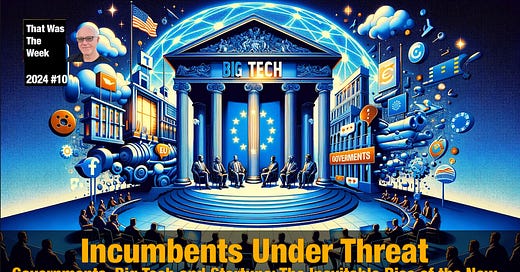







![Jan Calendar page being torn off to make way for Feb. [Dom Guman] Jan Calendar page being torn off to make way for Feb. [Dom Guman]](https://substackcdn.com/image/fetch/$s_!eSL0!,w_1456,c_limit,f_auto,q_auto:good,fl_progressive:steep/https%3A%2F%2Fsubstack-post-media.s3.amazonaws.com%2Fpublic%2Fimages%2F7c8e26b4-2b80-4e89-a9b3-8b510e936e97_900x506.jpeg)




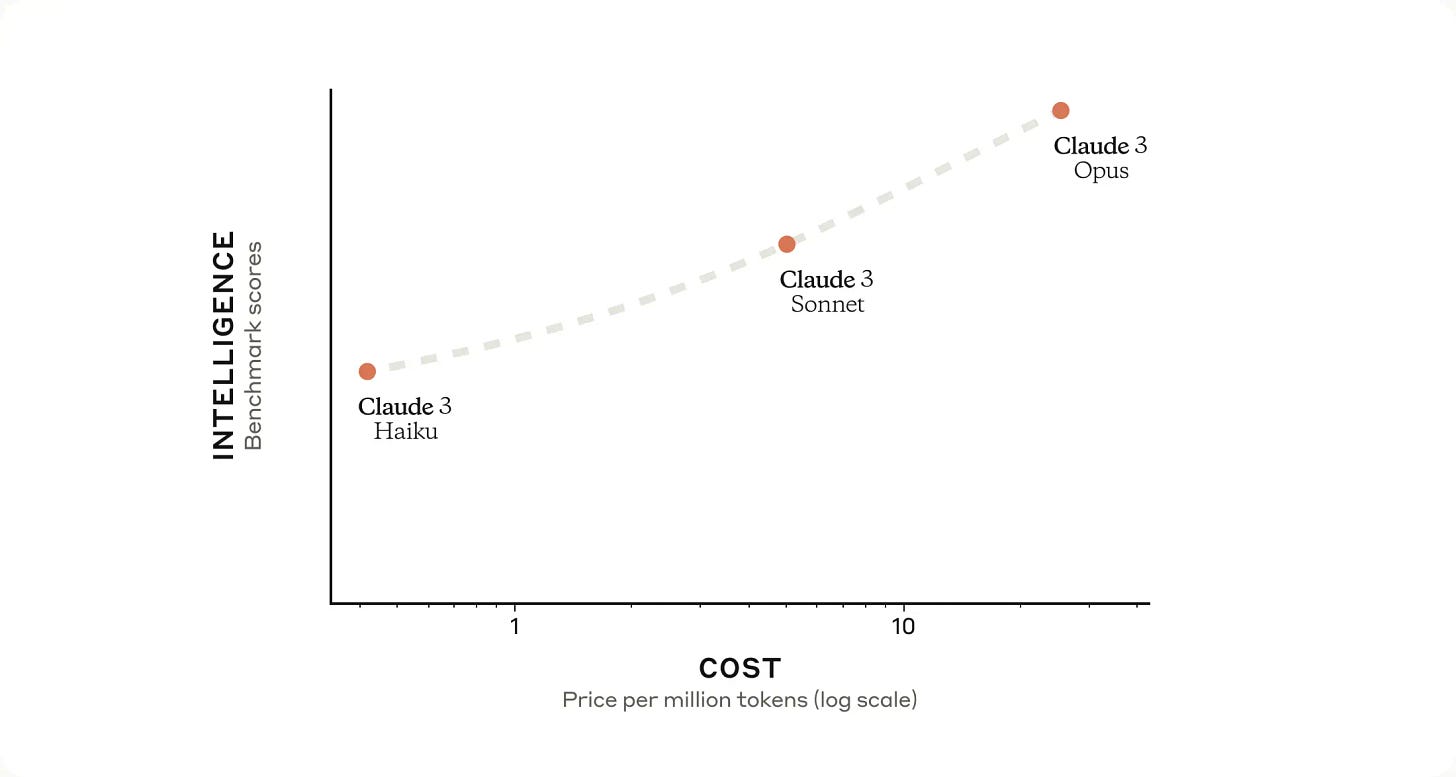

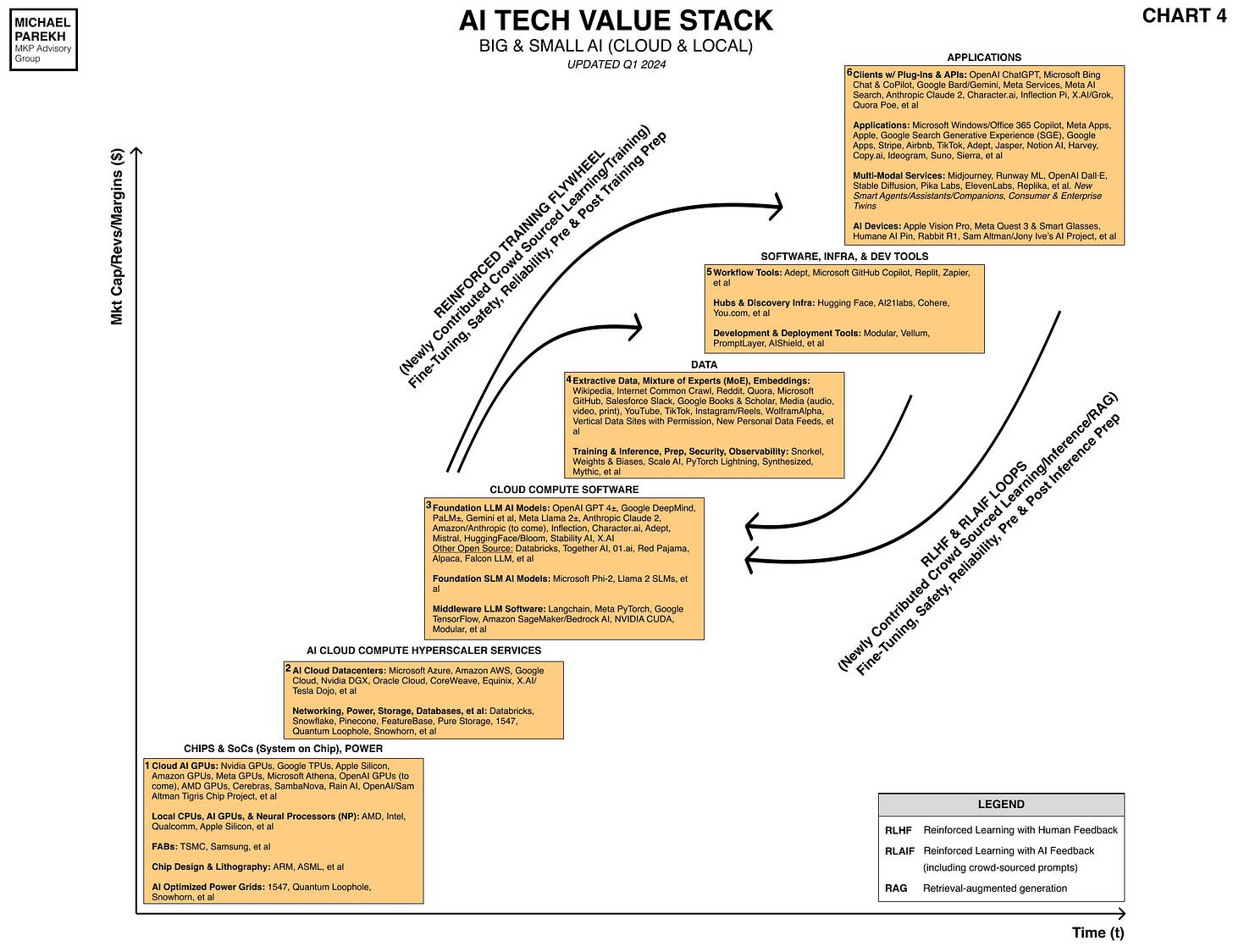
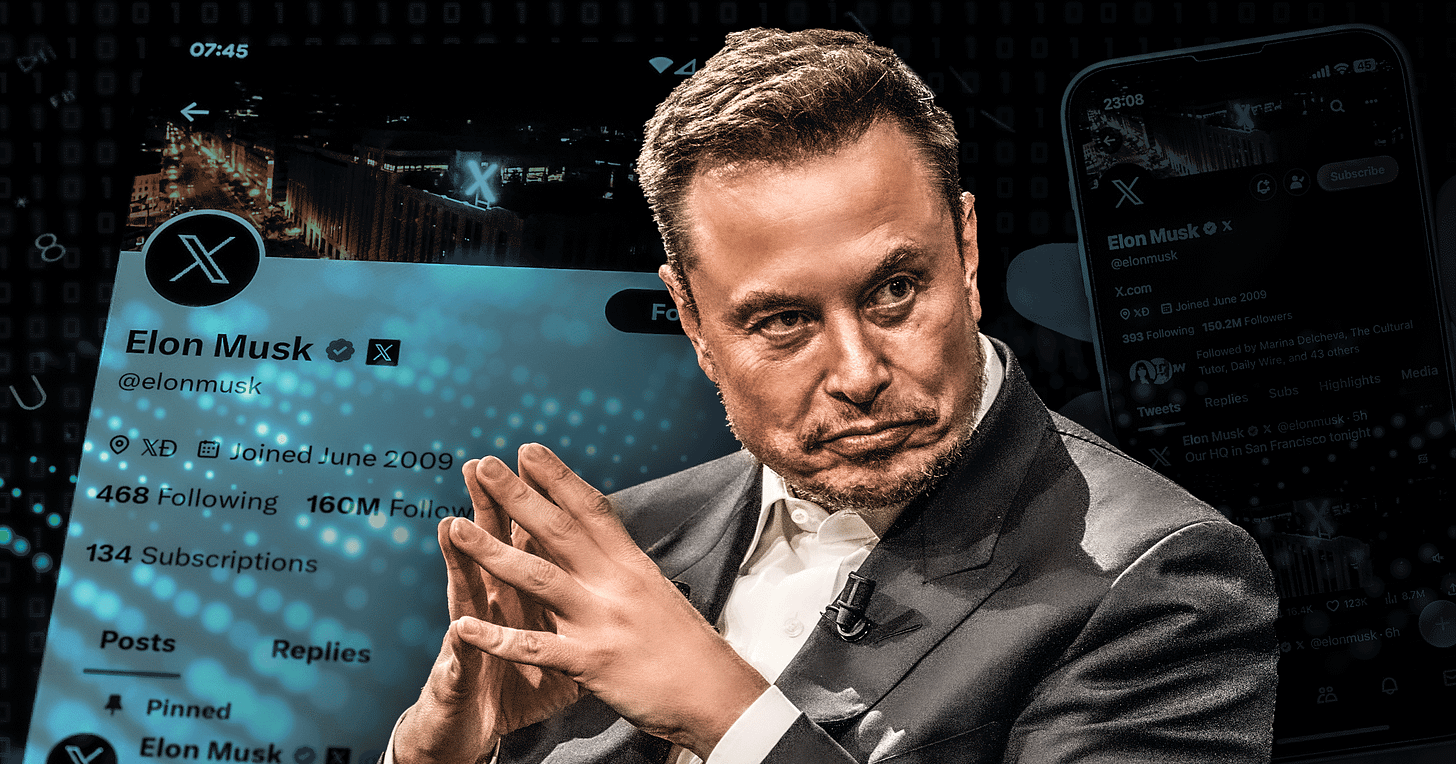
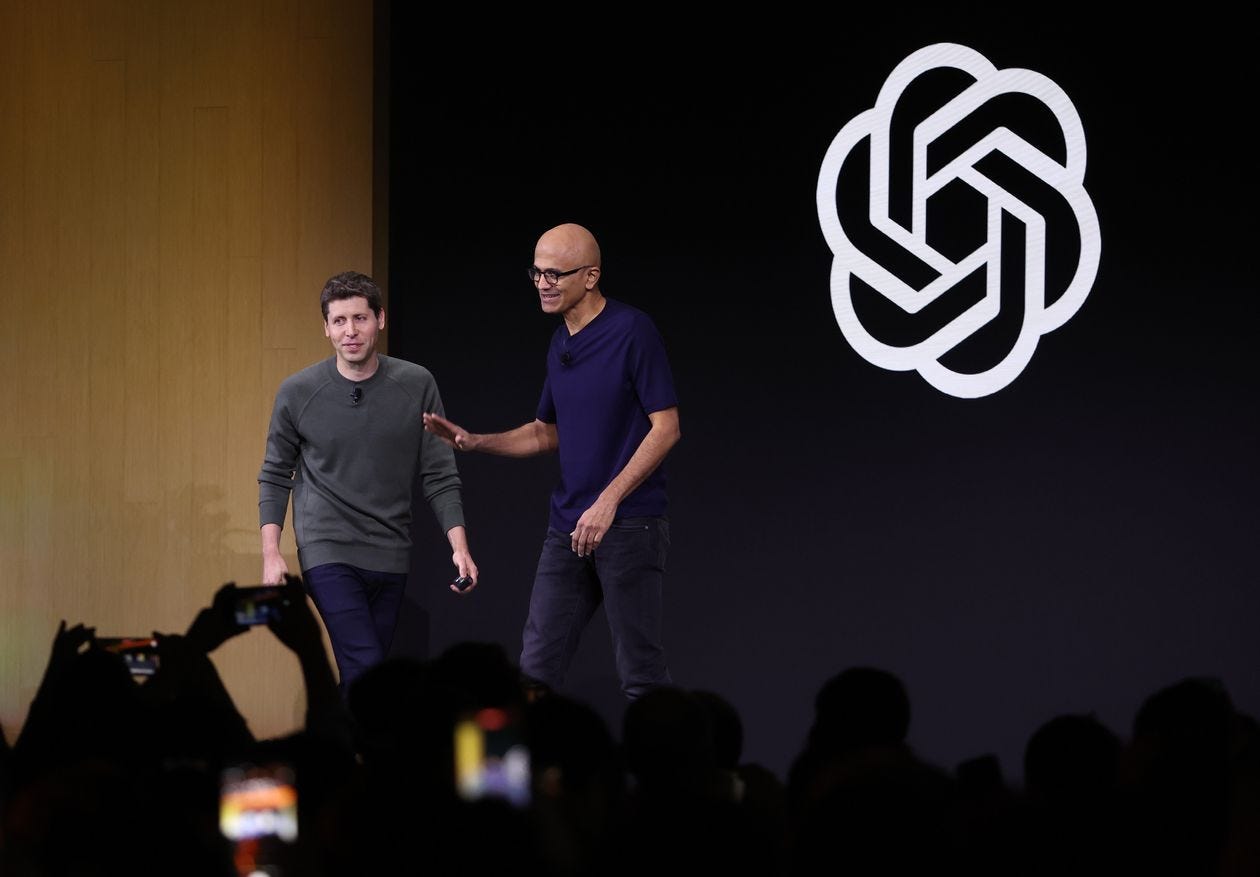










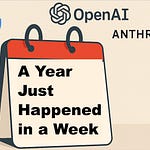



Share this post